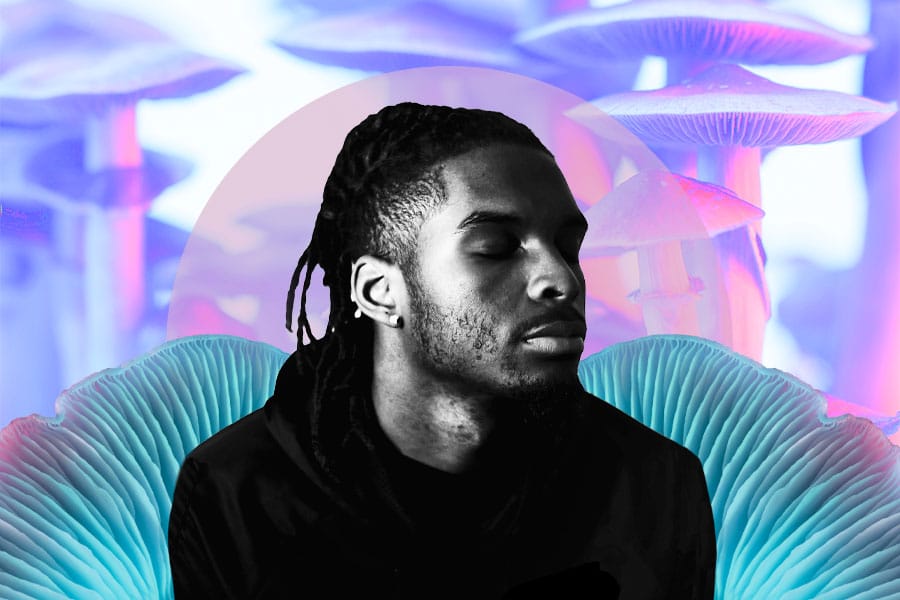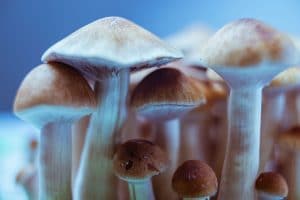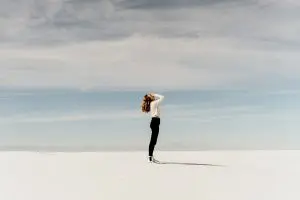During the first summer of the COVID-19 global pandemic, I would occasionally indulge in magic mushrooms, which would become a dedicated hobby and passion. In late August, I found myself mentally preparing to enter a world of remote learning in a country that was in desperate need of human connection and community. After a summer of intense racial strife and trauma, I needed to teach STEM classes to my brown and Black students, while navigating their social-emotional spectrum of everything “going on.”
As someone who has dealt with depression for over a decade, stemming back to high school, I decided to take a day trip for an eight-mile hike with two friends who had similar mental health struggles. I began to spend every weekend possible taking hikes in the area surrounding New York City. I went to bed early the night before, and that morning I stretched, hydrated, and ate a bacon-egg-n-cheese to prepare my body for the physical demands of the day. What I did not reveal to my friends, however, was that I had also micro-dosed one gram of magic mushrooms.
Growing a batch of magic mushrooms for my own therapeutic and spiritual growth is the latest step in my long journey of mental health healing. Like many other Black Americans, I am coping with post-traumatic slave syndrome and the continued negative media portrayal of the Black plight. To process the trauma and depression I have developed as an Afro-Latino in the violent landscape that is America, I have been in therapy consistently for almost four years. Unconventionally, I have also been taking psychedelics for fun and spiritual pursuit since 2012.
Taking psychedelics, particularly small doses of mushrooms, allows me to develop greater feelings of relaxation and calm than I ever have. To escape the trauma of racial hostility, feelings of inadequacy, and dehumanizing media portrayals of people who look like me, I began to find solace in inner self-reflection, quiet moments, and feeling in tune with my senses to the extreme. So it made sense when I purchased the spores to cultivate and grow the B+ Magic Mushroom Psilocybe cubensis.
What I did not know at that time was that inoculating spores and growing mushrooms would deepen my connection to my mother and grandmother, two women dedicated to their plants and gardens. As I began my journey of growing magic mushrooms, I also ventured into the plant dad realm and acquired several houseplants. While caring for my new plants and tending to the spores from inoculation to a mushroom flush, I noticed that I began to mirror the same “plant talk” and fixation on the life I was trying to grow and nurture as my mother and grandmother. My mother’s roots traced back to Brooklyn by way of the Carolinas and slavery, while my father’s led to the farms of Puerto Rico. As the day-to-day grind of quarantine took hold of me, I wondered about the purpose of life, the point of living through times like this, and longed for a sense of connection. I thought of my family on both sides.
Read: MDMA for Racial Trauma
Come March 2020, as the world spiraled out of control and many white New York residents fled back to their hometowns in suburban America, I began to fantasize about access to farmland, open space, and a rural area that I felt I deserved due to my ancestral lineage connected to the labor of open land. Like many during the COVID-19 quarantine and lockdown, I’ve spent the year trying to build better habits and routines with an intentional mindset to lean away from capitalist ideals. Inspired by the book Farming While Black and its passionate storytelling about community and rejection of white supremacist ideals, the spores purchase brought a little sense of control to my immediate life.
How to Grow Shrooms Bundle
Take Both of Our Courses and Save $90!
The cultivation process was a tale of success and failures, smiles and frustration. While I was interested both in nurturing plant life like the strong BIPOC matriarchs in my life and the therapeutic aspects of mushrooms, I also wanted to take something often condemned in society and demonstrate its beauty—despite being misunderstood because of a label. In a way, I could relate to the very fungi I was growing.
I wanted to take something often condemned in society and demonstrate its beauty. In a way, I could relate to the very fungi I was growing.
Despite being less than legal, on top of being stigmatized, I knew fundamentally that shrooms could benefit my life in a country that makes simply breathing a struggle for Black Americans. The growing process was no less challenging: A small mistake or even a chance reaction that was out of my hands could mean the growth of mold, damaging the worth of the mushroom batch. My father had told me as I was heading into a predominately white institute for high school that as a Black person, “you have to work twice as hard just to get half as far.” I saw myself in my mushroom batch. There are probably few Black Americans that have not been failed by something they could not control in our systematically oppressive society.
Access to adequate or affordable therapy is uncommon in the BIPOC community; stigmas related to mental health and a lack of health insurance are still prevalent issues. Many BIPOC around me, due to lack of insurance or financial access, have used magic mushrooms to cope with bouts of depression and negative thought loops. In some cases, including myself, it has replaced more dangerous substance abuse such as binge drinking. As Black Americans suffering mental health crises continue to be killed by police officers across America—including the plight of Walter Wallace, which put Philadelphia in the news two weeks before they put Joe Biden over the top in the Electoral College—there remains a need for community healing to treat the ever-present trauma.
Read: Is Good Therapy Too Inaccessible to POC?
The recreational usage of mushrooms has been proven to have therapeutic and spiritual benefits, but many in the BIPOC community lack access due to the inherently anti-Black War on Drugs and persistence of mindsets that associate seeking help or treatment with weakness. Despite being born in America, the child of two American citizens, I have never felt as safe in my body, home, and country as when I am under the influence of magic mushrooms. I feel a connection to the world around me and the history of the land, for better or worse. It inspires me to want better for myself and the history of marginalized people that I am connected to.
Like any good therapeutic substance, mushrooms are only part of the equation to self-care. I prioritized spending time in nature, taking a hike as many weekends as possible with limited transportation during the COVID pandemic. When not in nature, I became fixated on the image of the mushrooms, a slow growing fungi that require little upkeep, but command constant attention. Despite burn out from the constant continued struggle for equality, I began to feel more at peace more often. Participating in Community Supported Agriculture, or a community farm share with a mutual aid framework, constant hikes, small micro-doses, and cultivation of my own batch of magic mushrooms afforded me a sense of relief from my naturally occurring anxiety and depression. In a time where Black joy is being commodified, I followed the self-reliant path described by Audre Lorde: “Caring for myself is not self-indulgence. It is self-preservation, and that is an act of political warfare.”
With a rising suicide rate for Black youth, it is imperative that BIPOC look outside the models of spirituality and community that they are accustomed to. As COVID has impacted more conventional methods of community building and mental healthcare, spiritual journeys brought on by psychedelics can offer communion with the self. The supplementary nature of magic mushrooms and other psychedelics can only add to the necessary reflection required to process the constant trauma that Black Americans face.
For myself, the idea of growing my own small crop in the lineage of my family brought me solace and excitement simultaneously. I wanted to care for something outside myself that still felt like a part of me, a part of me that I had not yet discovered and developed. It taught me about myself and my future intentions. It taught me how cultivating our land and giving our time and energy to growing things can nourish our physical and spiritual selves, which can only bring us happiness. In a place like America, for Black people, that alone makes the trip worth it.

DoubleBlind is a trusted resource for news, evidence-based education, and reporting on psychedelics. We work with leading medical professionals, scientific researchers, journalists, mycologists, indigenous stewards, and cultural pioneers. Read about our editorial policy and fact-checking process here.

DoubleBlind Magazine does not encourage or condone any illegal activities, including but not limited to the use of illegal substances. We do not provide mental health, clinical, or medical services. We are not a substitute for medical, psychological, or psychiatric diagnosis, treatment, or advice. If you are in a crisis or if you or any other person may be in danger or experiencing a mental health emergency, immediately call 911 or your local emergency resources. If you are considering suicide, please call 988 to connect with the National Suicide Prevention Lifeline.



